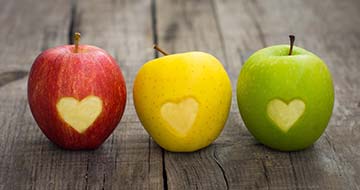Services
The first step in your care process is to understand the nature of your disease so that we can diagnose your condition.
Cardiac Electrophysiology, is the study of the electrical activities of the heart, specifically for the purposes of diag...
When our patients present with problems that may be cardiovascular in nature, we help determine the most likely diagnosi...
We help our patients improve blood flow in their arteries and veins by using very small tubes and specialized tools to d...
When the heart is functioning normally, the arteries are clear and open to allow for easy passage of blood through and o...
The highly trained surgeons and specialists at Biltmore diagnose and treat structural heart disease. We understand the n...
Angioplasty
The goal of an angioplasty is to unblock the artery and get blood flowing to the heart again. Other names that you may hear for an angioplasty are Percutaneous Coronary Intervention (PCI) and Percutaneous Transluminal Coronary Angioplasty (PTCA).
When Do You Need an Angioplasty?
In many cases, a heart attack happens because the arteries that deliver blood to the heart become narrowed or blocked. Perhaps a substance like a blood clot, fat or calcium has built up over time, and eventually the blockage becomes so severe the necessary amount of blood cannot reach the heart. The heart struggles to get oxygen the blood is supposed to deliver.
When that happens, immediate medical care is essential. Getting to an emergency room is the No. 1 priority. Emergency physicians can quickly diagnose a heart attack, and call in a heart care specialist. If the cause is a blockage like the one described above, the heart care specialist may perform an emergency angioplasty. The goal is to perform an angioplasty as soon as possible; minutes are precious in this situation.
Emergency or Elective?
For some patients, angioplasty may be an elective procedure. Their physician may refer them to a heart care specialist, who determines a blockage is forming and requires treatment before it triggers a heart attack. Elective angioplasty is scheduled, usually as an outpatient procedure.
How Angioplasty Works
Angioplasty is performed using a slim, flexible catheter inserted into a blood vessel, usually in the wrist or groin. The catheter is carefully guided toward the source of the blockage, where a variety of procedures can be performed to open the artery and restore blood flow. The average angioplasty procedure takes just 30 to 90 minutes to perform. Techniques include:
- Balloon Only - The catheter is carefully placed in the blockage, and a tiny balloon is expanded. As the balloon expands, it presses the blockage back against the artery wall, so that the artery is opened again. The balloon is then deflated and removed, using the same catheter.
- Balloon with Stent - The catheter may also deliver a balloon with a stent, which is a tiny, expandable, mesh tube. The balloon is inflated inside the stent and as it inflates, it expands the tube outward against the walls of the artery. The stent then acts as a support to keep the artery open.
- Drug-Eluting Stent - A stent may include the risk of creating additional scar tissue, which could lead to a future blockage. Some stents are coated with drugs that prevent that scar tissue from growing in the artery.







